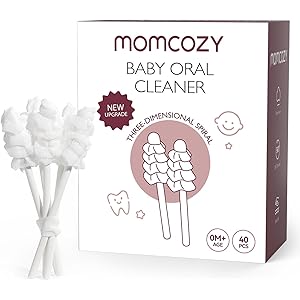No-Touch Thermometer for Adults and Kids, Accurate Digital Baby Thermometer, Fever Alarm & Silent Mode, 2 in 1 Forehead & Object Mode
$15.99 (as of October 13, 2025 17:48 GMT +00:00 - More infoProduct prices and availability are accurate as of the date/time indicated and are subject to change. Any price and availability information displayed on [relevant Amazon Site(s), as applicable] at the time of purchase will apply to the purchase of this product.)Understanding Prenatal Care
Prenatal care is a vital aspect of a healthy pregnancy, encompassing regular check-ups, screenings, and health assessments to ensure the well-being of both the mother and the developing fetus. This proactive approach allows healthcare providers to monitor the progress of the pregnancy, address any potential complications, and provide essential guidance on nutrition, exercise, and lifestyle choices. Engaging in consistent prenatal care can significantly reduce risks associated with pregnancy and childbirth.
The Importance of Immunizations During Pregnancy
Immunizations play a crucial role in protecting both the mother and the unborn child from preventable diseases. Certain vaccines are recommended during pregnancy to enhance the immune response and provide passive immunity to the baby. Vaccines such as the flu shot and Tdap are particularly important, as they help safeguard against infections that could pose serious health risks to both the mother and the newborn.
Recommended Vaccines for Pregnant Women
During pregnancy, healthcare providers typically recommend several key vaccines. The influenza vaccine is advised for all pregnant women, especially during flu season, to prevent severe illness. Additionally, the Tdap vaccine, which protects against tetanus, diphtheria, and pertussis (whooping cough), is recommended during the third trimester to ensure the baby receives antibodies before birth. These immunizations are essential components of prenatal care and contribute to a healthier pregnancy outcome.
Timing of Immunizations in Prenatal Care
The timing of immunizations is critical in prenatal care. Pregnant women should receive the flu vaccine as early as possible during flu season, while the Tdap vaccine is ideally administered between 27 and 36 weeks of gestation. This timing maximizes the transfer of antibodies to the fetus, providing the newborn with protection during the first few months of life when they are most vulnerable to infections.
Potential Risks of Not Vaccinating During Pregnancy
Neglecting immunizations during pregnancy can lead to severe health consequences for both the mother and the child. Unvaccinated mothers are at a higher risk of contracting infections that can result in complications such as preterm labor, low birth weight, and even stillbirth. Furthermore, newborns born to unvaccinated mothers may lack the necessary immunity to fight off infections, increasing their risk of hospitalization and serious illness.
Consulting Healthcare Providers About Vaccinations
It is essential for pregnant women to have open discussions with their healthcare providers regarding immunizations. Providers can offer personalized recommendations based on the mother’s health history, current health status, and the specific vaccines that are appropriate during pregnancy. This collaborative approach ensures that mothers are well-informed and can make educated decisions about their prenatal care and immunizations.
Postpartum Immunizations
Postpartum care also includes important immunizations for new mothers. After childbirth, women are encouraged to receive any missed vaccines, including the Tdap and flu vaccines, to protect themselves and their newborns. This continuation of care is vital as it helps maintain the health of the mother while also ensuring that the baby is shielded from preventable diseases during their early life.
Educational Resources on Prenatal Care and Immunizations
Access to reliable educational resources is crucial for pregnant women to understand the importance of prenatal care and immunizations. Many healthcare organizations provide comprehensive information on recommended vaccines, their benefits, and potential side effects. Utilizing these resources can empower mothers to take an active role in their health and the health of their babies, fostering a positive pregnancy experience.
Community Support and Prenatal Care
Community support plays a significant role in promoting prenatal care and immunizations. Local health departments, prenatal classes, and support groups can provide valuable information and encouragement for expectant mothers. Engaging with community resources can help women feel more confident in their prenatal care journey and reinforce the importance of staying up-to-date with immunizations.
Conclusion: A Holistic Approach to Prenatal Care
Taking a holistic approach to prenatal care that includes regular check-ups and timely immunizations is essential for the health of both mother and child. By prioritizing these aspects of care, expectant mothers can significantly enhance their pregnancy experience and contribute to better health outcomes for their newborns. Staying informed and proactive is key to navigating the complexities of pregnancy successfully.



